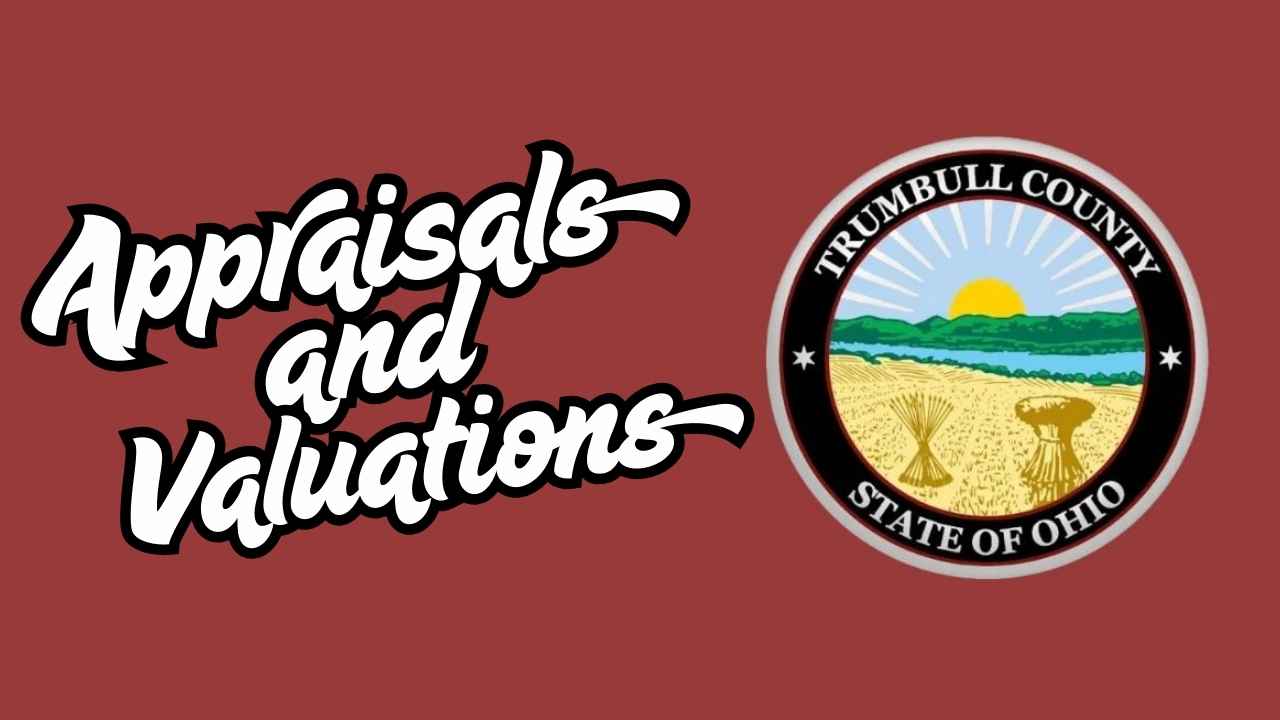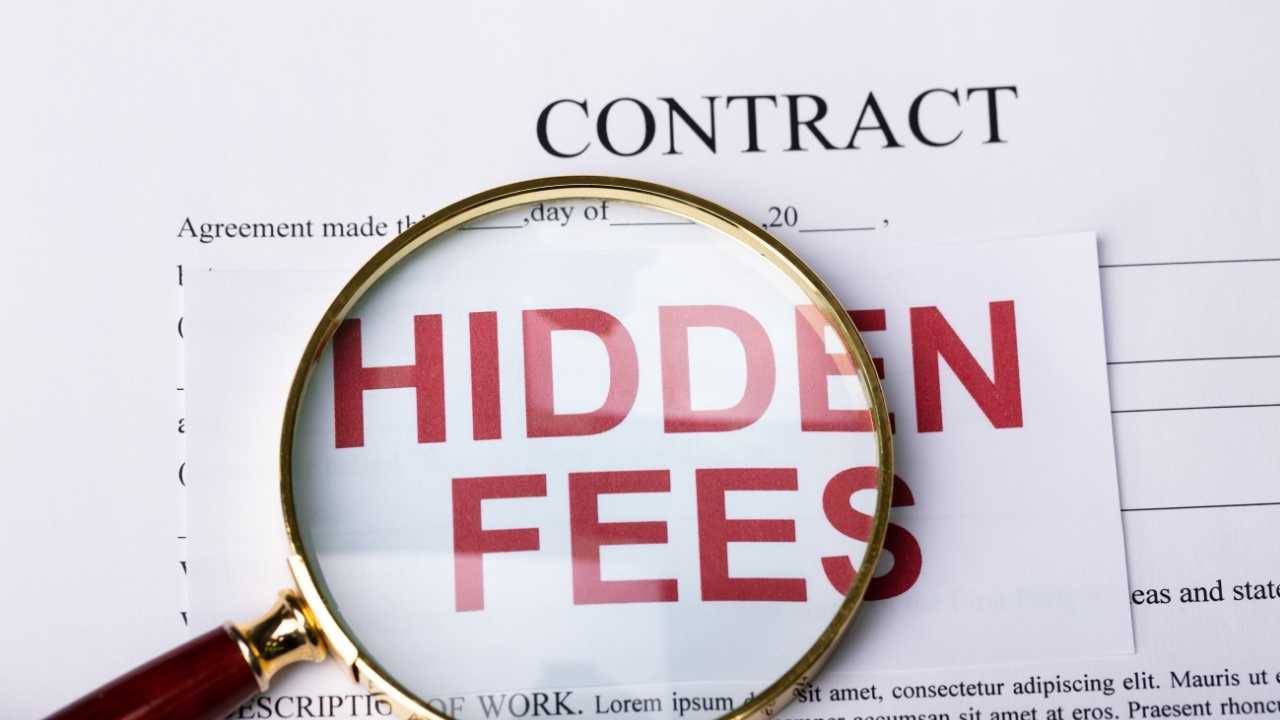The Trumbull County Auditor’s Office sets fair property values for taxes. This ensures everyone pays their fair share based on the market. They use a method called mass appraisal for homes, businesses, and land in Ohio.
In this article, we’ll dive into how these appraisals work. We’ll also cover recent updates, how to object to valuations, and important topics like Ohio mineral rights and tax versus actual value.
What Are Trumbull County Auditor Appraisals?
Appraisals in Trumbull County are done by the Auditor’s Office for tax purposes. They aim for fairness using mass appraisal. This method values properties as of a specific date, based on sales data and market trends.
Unlike individual appraisals, mass appraisal looks at groups of properties. The Auditor’s Office uses sales data and inspections to keep values accurate.
The 2023 reappraisal involved checking every property’s exterior. This is done every three years to reflect current market conditions.
Why Are Appraisals and Valuations Important?
Property valuations affect how much you pay in property taxes. In Trumbull County, taxes are 35% of the appraised market value. Fair valuations mean no one pays more than their share.
Valuations also fund community services like schools and roads. Accurate appraisals help distribute the tax burden fairly.
If valuations are wrong, some might overpay, while others underpay. The Auditor’s Office works hard to get it right.
How Does the Trumbull County Appraisal Process Work?
The appraisal process starts with data collection. Auditors gather sales data, construction costs, and market trends. They also do visual inspections of properties.
For the 2023 reappraisal, auditors reviewed every property in Trumbull County. They looked at recent sales of similar homes. Physical characteristics, like home size and condition, also matter.
After collecting data, the Auditor’s Office uses statistical models to estimate fair market value. This value is what a property would likely sell for on the open market.
Key Steps in the Appraisal Process
- Data Collection: Auditors gather sales data and property details.
- Exterior Inspections: Each property is visually checked.
- Market Analysis: Recent sales and trends are analyzed.
- Value Estimation: Statistical models set the fair market value.
- Review and Appeals: Property owners can challenge valuations.
Recent Trumbull County Appraisals: What’s New?
In 2023, Trumbull County did a major reappraisal, as Ohio law requires every six years. This updated property values for 2024 tax bills. Auditor Martha Yoder said the goal was not to raise taxes but to reflect current market conditions.
The reappraisal showed big increases in some areas due to a hot real estate market. Some neighborhoods saw value increases of 20% or more. These values are tentative until finalized by the Ohio Department of Taxation.
Property owners can check their updated valuations online at the Auditor’s website. If you disagree, you can request a review or file an objection.
How to Check Your Trumbull County Property Values
The Trumbull County Auditor’s website has a simple property search tool. You can find your property by address, parcel number, or owner name. This tool shows your current valuation, tax history, and comparable sales.
To use it, visit the Auditor’s website and click “Property Search.” The interactive map view shows your property’s location and nearby sales data. This helps you understand how your valuation was calculated.
Checking your property value is the first step to ensuring it’s fair. If something seems off, you can take action.
Trumbull County Objection to Reappraisal: Your Rights
If you think your property’s valuation is too high, you can file a Trumbull County objection to reappraisal. The Board of Revision (BOR) handles these complaints. The BOR includes representatives from the Auditor, Treasurer, and Commissioners.
To file an objection, submit a DTE Form 1 by March 31, 2025, for the 2024 tax year. You can get the form online or by calling (330) 675-2420. Be sure to include your opinion of the property’s value and supporting evidence, like recent appraisals or sales data.
The BOR reviews your complaint and may schedule a hearing. You’ll need to prove why the valuation is wrong. Most homeowners handle this without a lawyer, but legal advice can help.
Steps to File an Objection
- Get the DTE Form 1 from the Auditor’s website.
- Fill out the form with your property details and value opinion.
- Gather evidence, like recent sales or appraisals.
- Submit the form by March 31, 2025, in person, by mail, or email.
- Attend a hearing if scheduled and present your case.
Trumbull County Objection to Reappraisal of Home Value
A Trumbull County objection to reappraisal of home value follows the same process as other objections. The focus is on proving your home’s market value is lower than the Auditor’s estimate. Common reasons include errors in property details, like incorrect square footage, or recent sales showing lower values.
For example, if your home is valued at $200,000 but similar homes sold for $180,000, you can use those sales as evidence. You might also hire an independent appraiser to support your claim.
Hearings last about 15 minutes and can be in person or via Zoom. Only the property owner can attend, and discussions are limited to value, not taxes.
Ohio Mineral Rights Value in Trumbull County
Mineral rights, like oil, gas, or coal, can change how much your property is worth in Trumbull County. Ohio values mineral rights separately from the land itself. If your land has valuable minerals, it could make your property more valuable.
The Auditor’s Office looks at things like lease agreements and market rates when figuring out mineral rights value. For example, active gas wells can add a lot of value. But, if someone else owns the mineral rights, they get taxed separately.
Property owners should check their valuation to make sure mineral rights are right. If there’s an error, mention it when you object to the BOR.
Tax Valuation Trumbull County vs. Actual Value
In Trumbull County, tax valuation is 35% of the appraised market value, as Ohio law requires. This is different from the actual value, which is what your property might sell for.
For instance, if your home’s actual value is $100,000, the tax valuation is $35,000. Taxes are based on this lower amount. But, if the market is booming, your actual value might go up faster than the tax valuation.
This difference can cause confusion. A high actual value doesn’t always mean high taxes. Only the tax valuation matters for your bill. It’s important to check both values to understand your property’s status.
Tax Valuation vs. Actual Value Example
| Property | Actual Value | Tax Valuation (35%) | Estimated Tax (2% Rate) |
|---|---|---|---|
| Home A | $100,000 | $35,000 | $700 |
| Home B | $200,000 | $70,000 | $1,400 |
| Commercial Lot | $500,000 | $175,000 | $3,500 |
Note: Tax rate is an example. Actual rates vary by district.
Special Programs to Lower Your Taxes
The Trumbull County Auditor has programs to lower your property taxes. The Homestead Exemption is a big one, letting homeowners exclude up to $26,200 from their taxable value. This saves about $535 a year.
Other programs include the Current Agricultural Use Value (CAUV) for farms and tax breaks for veterans. For example, veterans can exempt up to $50,000 of their home’s value. Seniors over 65 with incomes below $36,100 in 2023 also qualify for Homestead.
To apply, visit the Auditor’s website or call (330) 675-2420. These programs can make a big difference in your tax bill.
Trumbull County Tax Relief Programs
| Program | Eligibility | Benefit |
|---|---|---|
| Homestead Exemption | Seniors, disabled, income < $36,100 | Up to $26,200 off taxable value |
| Veterans Exemption | Military veterans | Up to $50,000 off taxable value |
| CAUV | Qualifying farmland | Lower valuation based on ag use |
How to Appeal a Valuation: Tips for Success
Appealing a valuation can seem hard, but being prepared is key. Start by collecting strong evidence, like recent home sales or an independent appraisal. Photos of property issues, like a damaged roof, can also help.
Be clear about your home’s value. For example, if the Auditor says your home is worth $250,000, but you think it’s $220,000, say that on the DTE Form 1. Vague complaints are less likely to succeed.
At the hearing, focus on value, not taxes. The BOR can’t change tax rates, only valuations. Practice your points to keep the 15-minute meeting concise.
Common Mistakes in the Appraisal Process
Sometimes, appraisals have errors. Common mistakes include incorrect property details, like the wrong number of bedrooms or lot size. These can lead to overvaluation.
Another issue is outdated sales data. If the Auditor uses sales from a hotter market period, your value might be too high. Check the comparable sales listed in your property report.
If you spot an error, contact the Auditor’s Office at (330) 675-2895 to discuss it. Many issues can be fixed without a formal objection.
Digital Tools for Property Owners
The Trumbull County Auditor’s website is full of tools. The property search lets you view tax history, GIS maps, and valuation details. You can also pay taxes online or check the tax assessment schedule.
GIS mapping shows property boundaries and nearby sales. This helps you see how your valuation compares to others in your area. The site is mobile-friendly, so you can access it anywhere.
These digital services make it easier to stay informed and act quickly if you need to appeal.
Property Taxes in Trumbull County
Property taxes in Trumbull County fund local services like schools and roads. The tax rate, or millage, is set by voter-approved levies in your taxing district. One mill equals $1 per $1,000 of taxable value.
Your tax bill depends on your property’s tax valuation and the millage rate. For example, a $100,000 home with a 50-mill rate owes $1,750 (35% of $100,000 x 50 / 1,000). Check your district’s rate online.
Taxes are billed by the Treasurer’s Office, not the Auditor. Bills go out in mid-January, with payments due in February and July.
Ohio Law and Trumbull County Appraisals
Ohio law shapes how appraisals work. The Ohio Revised Code (ORC) requires county auditors to update values every three years and conduct a full reappraisal every six years. This keeps valuations current with the market.
ORC Section 5713.01 says auditors must use a uniform approach to find fair market value. This protects property owners by ensuring consistency. The state’s Department of Taxation reviews and approves final valuations.
If you have questions about the law, call the Auditor’s Office or check the ORC online for details.
How Market Trends Affect Trumbull County Property Values
Property values in Trumbull County are closely linked to the local real estate market. In 2023, home prices went up, leading to higher valuations. Areas with high demand saw the biggest increases.
Location, home condition, and recent improvements also play a role. For example, a newly renovated home might be worth more than an older one nearby. It’s important to check local sales data to understand market trends in your area.
If the market cools down, future appraisals might show smaller increases or even decreases. To stay updated, regularly check the Auditor’s website.
What to Do If You Disagree with Your Valuation
If you disagree with your valuation, act quickly. Contact the Auditor’s Office to discuss your concerns. You can schedule a 15-minute review with an appraiser to go over your property’s details.
If the review doesn’t solve the issue, file a formal objection with the BOR. The deadline is March 31, 2025, for 2024 taxes. Be ready with evidence and a clear value estimate.
You can also hire an attorney or appraiser for help. But many homeowners succeed on their own with good preparation.
FAQs About Trumbull County Appraisals and Valuations
Q: How often are properties appraised in Trumbull County?
A: Every three years, with a full reappraisal every six years.
Q: Can I appeal my valuation?
A: Yes, file a DTE Form 1 with the Board of Revision by March 31.
Q: What’s the Homestead Exemption?
A: It reduces taxable value by up to $26,200 for eligible homeowners, saving about $535 yearly.
Q: How do mineral rights affect my valuation?
A: Active mineral rights, like gas wells, can increase your property’s value.
Q: Where can I check my property value?
A: Use the property search tool on the Trumbull County Auditor’s website.
Conclusion
Trumbull County Auditor appraisals and valuations ensure fair property taxes by using mass appraisal to reflect market values. The 2023 reappraisal updated values for 2024 taxes, and property owners can check these online. If you disagree, file an objection by March 31, 2025, with strong evidence. Programs like the Homestead Exemption and tools like GIS mapping help residents save money and stay informed. Visit the Auditor’s website or call (330) 675-2420 for more details.




